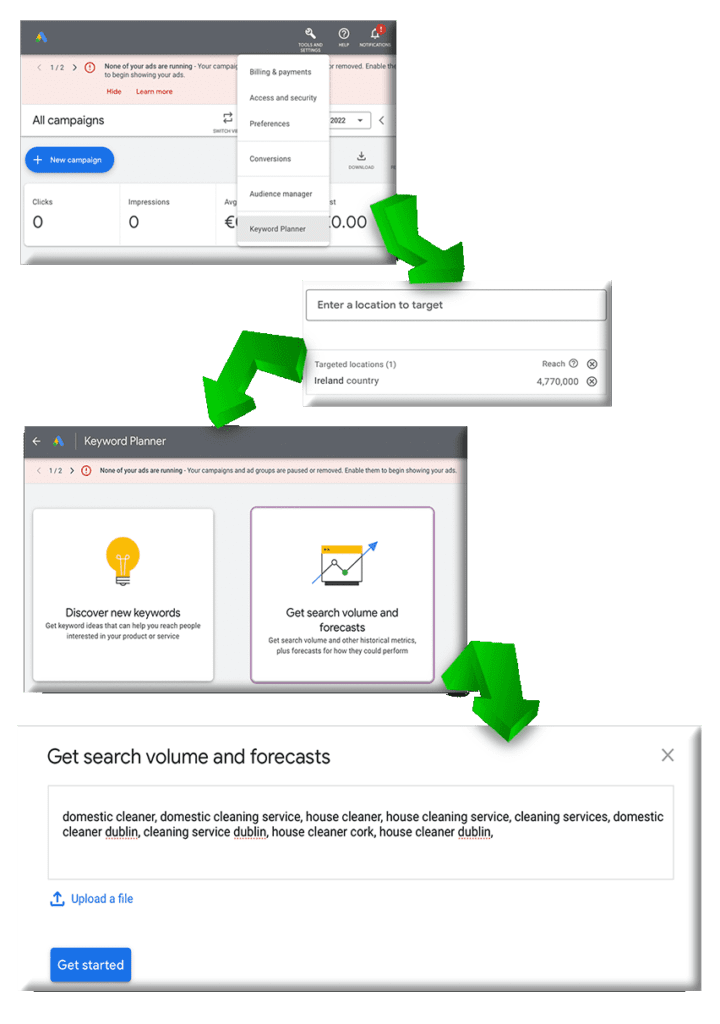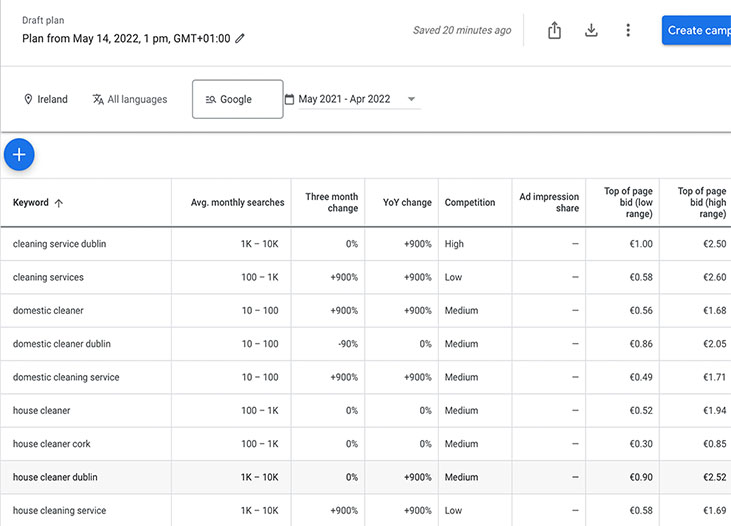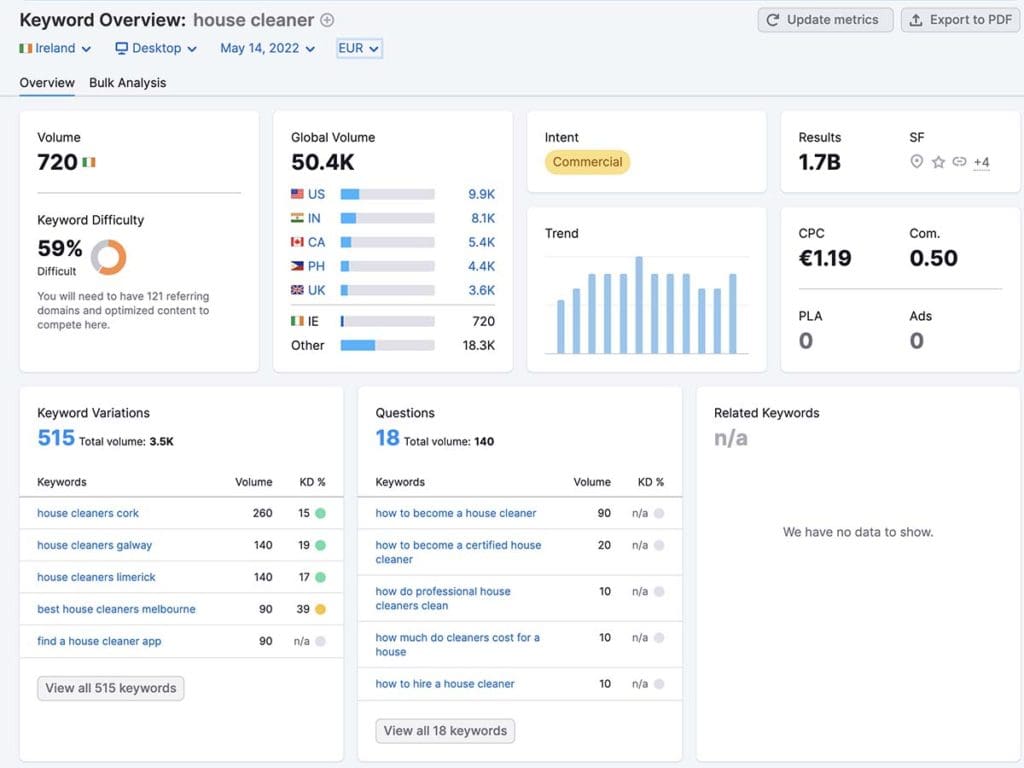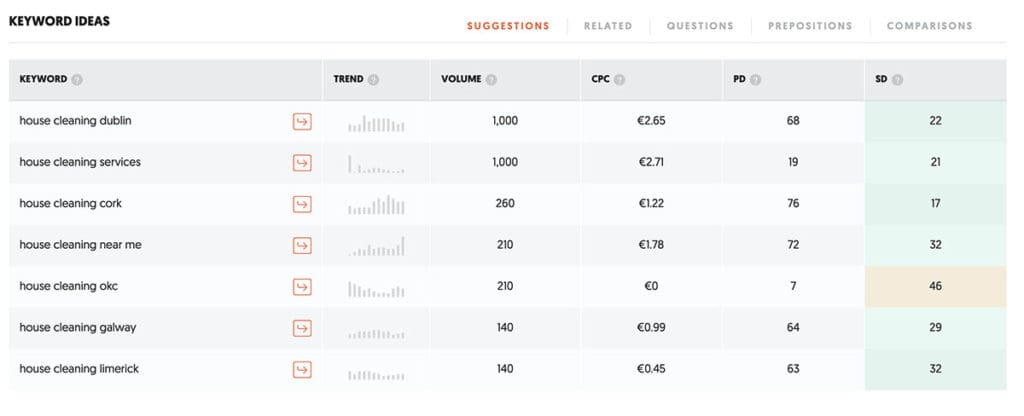Rank smarter by avoiding low competition keyword traps
This post was prompted by the volume of posts I’ve seen recently that have hyped up low competition keywords as the answer to your SEO and search engine ranking problems. Let’s just burst that bubble once and for all – they’re not. If you take this keyword ranking shortcut advice at face value, you will waste time as well as effort and potentially damage your long term SEO prospects.

Table of Contents
What is a low competition keyword?
Low competition keywords are keywords that are generally easier to rank for because the content market is slightly less crowded than more popular keywords. There are a number of reasons why keywords would qualify as lower competition. They are generally keywords that are less attractive to your business competitors because they have a low volume of searches per month, limited relevance or low value. Some keywords are a combination of these.
So what does that actually mean for organic traffic?
A low volume of searches per month indicates that a keyword simply isn’t that popular. That could be because it’s a niche term, with relevance to only a few businesses and a small audience; or it’s just not something that anyone cares about! It’s important to bear in mind too, that ‘low volume’ is relative. There are many small business sectors in Ireland whose entire online market would be considered so ‘low value’ that many of the big keyword tools can’t even evaluate them!
A keyword with limited relevance is one that might be related to your core business or your audience’s core interest, but is just not a relevant enough to be meaningful to your strategy, your business objectives or the customer you’re trying to attract.
The extent to which an organic keyword will meet your business objectives is part of the keyword value metric. In the broader digital market place, relevant keywords that target customers later in their buying journey when they have higher search intent are a potentially more valuable than those that target earlier stages.
How can I find and evaluate low competition keywords?
There are many free and paid keyword tools out there – they all have their own advantages and disadvantages, which I won’t go into here. For the purposes of this post, I’m going to focus on Google’s Keyword Planner. As with virtually all other research tools, the numbers that the Google Keyword Planner generates need to be approached with a degree of scepticism but that doesn’t make it any less useful as a starting point. You can read Moz’s article on Google Keyword Planner Dirty Secrets to get a better understanding of why it is best to use a range of different tools for keyword research.
Google Keyword Planner
The big advantage with Google Keyword Planner is that it’s completely free and unlimited. So let’s just jump in. You’ll need to set up a Google Ads account, but you don’t need to run ads or provide a payment method to use the planner.
1. Within your ads account, select the keyword planner.
2. Next, make sure to choose the location of your target audience
3. Click ‘Get search volume and forecasts’
4. Enter the target keyword or list of keywords that you are interested in. I’ve used a selection of similar related keywords here to illustrate the different results.

Google Keyword Planner Results
In the Google Keyword Planner results list, you will see the average monthly searches for each term, an indication of the search volume trends and the level of competition you face. You will also see the average cost per click (CPC) rates that are being paid for this keyword.

Other tools to identify low competition keywords

SEMrush Keyword Overview
SEMrush’s Keyword Overview tool is available on a limited basis with a free account. You’ll get a variety of information about each keyword, including an estimate of its search volume and difficulty.
What I like about the SEMrush tool is the estimated intent of a searcher using the term. A searcher designated as having commercial intent is deemed to be one that is weighing up their options. This is different to, for example, an informational searcher who is not currently looking to make a purchase or a booking, but is researching the topic. These ratings are not 100% accurate, but they are based on observations of what past searchers did next, so they are worth considering.
Ubersuggest.com Keyword Overview
Ubersuggest.com’s free keyword research tool is probably the most beginner friendly tool available. It’s available with a free account on a limited search and results basis. Again, take the results as indicative – the paid version of Ubersuggest’s tool is much cheaper than SEMrush and the results can be inconsistent at times – particularly for a relatively small market like Ireland (when compared to the kind of numbers they crunch for much larger countries). However, it’s a very useful starting point.

How do low competition keywords help with SEO?
So how exactly do low competition keywords help with SEO? Well, anyone that has tried to rank content for a new website knows that initially it can feel like trying to move a mountain. Very broad short tail keywords are much harder to rank for because there is just so much other content to compete against. Established sites with a lot of related content are going to rank higher for terms when compared to a newer site with less related content. So it’s not just about the specific piece of content you are trying to rank. Long tail keywords, on the other hand will sometimes be less competitive if they are targeting a much narrower scope or a niche audience.
Ranking can be a bit chicken and egg. A site that ranks for a lot of search terms, will find it much easier to rank a specific piece of new content. A site that doesn’t rank for any search terms will find it extremely difficult, even if the content is good quality. So in general, ranking for easier terms is a good starting point and will help your page authority SEO overall.
So what's the problem?
The problem lies in focus and effort. Firstly, ranking content for low competition keywords is easier, but only in comparison to ranking for higher competition ones. For a small business, the effort and opportunity cost involved in producing quality content is still quite significant, particularly if it’s not a process that comes naturally to you. Secondly, what exactly are you chasing? Chasing low competition keywords on principle, is one of the most common SEO mistakes for that site owners make when they are trying to rank a new site. If the keywords you decide to pitch for are not close enough to the topic of your site, you are unlikely to have much success. Furthermore, unless the searcher’s needs are satisfied by your content, having increased your visitor numbers, they may leave immediately, resulting in a high bounce rate. This is a turn-off for search engines, so your content ranking would actually decrease. Considering the opportunity and effort costs of creating content to rank for low competition keywords cost per click (CPC) advertising for more relevant or high intent keywords could provide better return on investment.
It’s important to note that if your site has unresolved technical SEO issues or you are not creating high quality content, you are unlikely to rank well in organic search listings. No matter how low the competition, random unrelated sites that are vaguely related will rank before you do every time. Keep a balanced view of your overall SEO strategy – keywords are just one part, but you still need to get the fundamentals in place. Put your effort into what is likely to be most effective in the long run. Short term ranking endeavours may not be best use of your time or work in your long term favour.
The critical thing in SEO is to keep your eye on the business goal, so always keep in mind what your overall content strategy is aiming to achieve. As you can see ranking for its own sake can be a counter-productive objective.
How to choose the right low competition keywords to chase
Ranking for low competition keywords can really work for your SEO strategy if you keep your attention on the objective of the content in question. Who is it actually for and what do you expect the searcher to do in response? If the purpose of your content is simply to raise awareness of your brand, low competition keywords that are very closely related to your business area will be useful. If you are operating in a niche market, a low competition keyword might have a better than average conversion rate – these keywords would offer a very high return on investment. Always ask yourself whether the keyword is worth the effort. Bear in mind that most search traffic goes to the top 5 ranked websites in a search. So low volume searches may simply not be worth the effort, even if you managed to win the top spot and capture 30% of the searches.
When considering whether to chase low-competition keywords, always ask yourself:
- Are they closely related to the overall nature of your business and the body of content on your site?
- Do they naturally fit the content and will they attract the right audience that will hang around to actually read the content?
- If they have a low search volume, could they (along with your content) convert a potential customer?
- Do the likely results fit your strategy and do they justify the effort involved in tailoring content to the keyword?
In summary
The takeaway is that whilst keyword competitiveness is an important factor in your keyword strategy and content plan, it should not be considered an effective shortcut. A comprehensive SEO strategy and good quality content will always serve your business objectives better than an excessive focus on ranking a keyword for its own sake. Even if it takes longer, directing your effort towards more competitive keywords and longer term SEO success will provide a return on investment that lasts long into the future